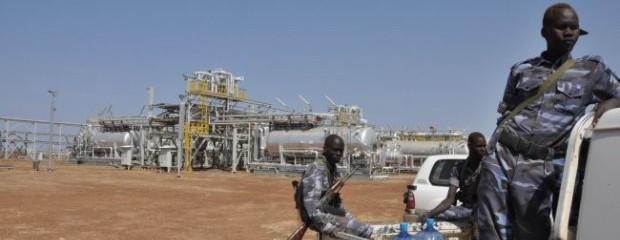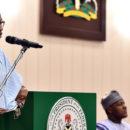Mozambique elections and beyond: Renamo MPs sworn in, but violence raises stakes in a predictable game – By Justin Pearce

 It has taken almost four months since Mozambique’s last general election for members of parliament from the largest opposition party, Renamo, to be sworn in. Renamo had rejected the electoral results and demanded new political concessions in return for participation in parliament: a strategy that the party has used in some form at previous elections. What was different about the October 2014 elections was that they took place after two years of armed, organised and politically motivated violence. Some respected observers called it “war”. After 22 years of peace, 20 years of electoral democracy, and 10 years of declining fortunes for Renamo, in 2014 gunfire and bloodshed came close to sabotaging the constitutional process entirely.
It has taken almost four months since Mozambique’s last general election for members of parliament from the largest opposition party, Renamo, to be sworn in. Renamo had rejected the electoral results and demanded new political concessions in return for participation in parliament: a strategy that the party has used in some form at previous elections. What was different about the October 2014 elections was that they took place after two years of armed, organised and politically motivated violence. Some respected observers called it “war”. After 22 years of peace, 20 years of electoral democracy, and 10 years of declining fortunes for Renamo, in 2014 gunfire and bloodshed came close to sabotaging the constitutional process entirely.
Renamo and its leader Afonso Dhlakama came close to winning Mozambique’s second elections in 1999. At the 2004 general election and 2008 municipal elections they saw their support shrink progressively. Dhlakama’s response was to disengage from national politics. Some in Mozambique blame Dhlakama’s own political ineptitude for this and say he had run out of other strategies. Others suggest that Joaquim Chissano, president until 2004, was able to keep Dhlakama in the system through a mixture of political wisdom and patronage, while his successor, Armando Guebuza, regarded Dhlakama as a problem that could simply be wished away.
Whatever the reason, in May 2009 Dhlakama left Maputo for the northern city of Nampula, claiming he could be more effective there, in a region that usually votes for him. Renamo parliamentarians remained active in the capital. Dhlakama, as always, was accompanied by his “presidential guard”, the armed force that he retained under his personal control in terms of the 1992 Rome Peace Accord that ended the civil war. In March 2012 these guards, plus several hundred other former Renamo guerrillas, exchanged fire with riot police outside Renamo’s Nampula provincial headquarters.
Relations between Dhlakama and the government worsened to the point where in October 2012 the Renamo leader relocated to Satungira, one of his wartime redoubts in the Gorongosa National Park in central Mozambique. In June 2013 a series of ambushes on Mozambique’s single north-south arterial road, as well as exchanges of fire between Renamo guards and government security forces, indicated that Renamo was prepared to use weapons more powerful than yet another threat of electoral boycott.
Initial negotiations happened quickly. Governments faced with an outbreak of armed violence are usually quick to cry “terrorism” and to deny the legitimate motives of their adversaries. Frelimo’s attitude, by contrast, was conciliatory. Party officials explain this in terms of needing to halt the violence as quickly as possible. Critics say it was because Frelimo knew that Renamo retains enough of a political constituency that it cannot be dismissed as a mere nuisance. Renamo’s early demands concerned the framework for conducting elections, echoing the party’s long-held conviction that previous elections have been conducted fraudulently. This time the call was for “parity” on the National Electoral Commission, meaning equal representation for all those parties with seats in parliament.
Talks dragged on for more than a year, as did ambushes by Renamo and military operations by the Mozambican Armed Forces against Renamo bases. Some concessions in the electoral law were made in time for the November 2013 municipal elections. Conflict later resumed and Renamo’s demands shifted. By the time an informal truce took hold in June 2014, Dhlakama had raised the issue of “parity” in relation to the government’s armed forces, insisting that half the senior officers should be Renamo nominees. This involved a reinterpretation of the Rome Accord, the precise implications of which were left deliberately unresolved in 1992. A peace plan published in August 2014 provided for the integration of Renamo’s “residual forces” into a national army that would be non-partisan. The finer details were left for another day, but the agreement at least brought Renamo into the elections that went ahead as scheduled in October.
The violence and subsequent peace talks loomed over the electoral campaign. Renamo trumpeted the efficacy and moral rightness of its return to arms. The music that jangled from the cars on campaign convoys had lyrics about “Dhlakama – a life of sacrifice!” that drew parallels between the attacks of the last two years and Renamo’s historic image of itself as the party that brought democracy to Mozambique. This message did more than simply to animate the Renamo faithful. On the streets of Maputo, deep Frelimo country, unemployed young men picked up this theme with comments like “Dhlakama went to the bush to fight for democracy”. The most remarkable reaction was from that social stratum that we call civil society: urban middle class intellectuals, clergy, NGO types. They came as close as they could to saying that Dhlakama had done the right thing, stopping just short of endorsing his call to arms.
Such sentiments sounded odd coming from a section of society not known for its taste for armed conflict, and contradicted Dhlakama’s habitual complaint that “civil society” is a front for Frelimo. That they could do so was possible thanks only to the way in which Dhlakama framed his demands during negotiations: the separation of ruling party and state, and electoral law reform so as to put an end to perennial fraud. These are exactly the demands that civil society activists have been making for years. Although Dhlakama’s other main demand, concerning parity between Frelimo and Renamo officers in the security forces, was of lesser concern to wider society, he made it acceptable to the middle ground by framing it in terms of the Rome Accord.
Frelimo’s campaign, meanwhile, rested on the premise that it is the party that commands the resources to get things done: a convenient conflation between party and state that persists in the absence of any change of ruling party since 1975.
“Frelimo é que fez e Frelimo é que faz” (Frelimo did and Frelimo does) was among the slogans that emphasised continuity and effectiveness. At the same time, television spots presented candidate Filipe Nyusi as “the son of farmers, a Mozambican like you”, an image distinct from that of his predecessor Armando Guebuza, who had become an icon of a party elite’s self-enrichment through privileged access to the emerging energy sector and other business opportunities.
The MDM, the third political force that since 2009 has picked up much of the votes lost by Renamo at national and municipal elections, engaged in the campaign on the basis of the usual opposition party demands: fairer distribution of wealth and better public services. It was in places like Beira, where the MDM has controlled municipal administration for some years, that the MDM was best able to confront Frelimo on its own terms, as a deliverer of public goods. Voters in the second city recounted how as mayor, MDM leader Daviz Simango had cleaned up the streets and – in a macabre but heartfelt detail – improved the organisation of the city mortuary where bodies had previously been left in an untidy heap.
Results revealed that in comparison with the 2009 election, Frelimo’s tally of parliamentary seats dropped from 191 to 144, while Renamo increased its representation in parliament from 51 to 89 and the MDM from eight to 17 seats. In the presidential poll, Nyusi came in with 57%, well below the 75% gained by Guebuza in 2009. MDM leader Simango’s share of the presidential vote shrank from 9% in 2009 to 6% this time around. Dhlakama, meanwhile, more than doubled his share of the vote from 16% to 37%, reversing a steady decline in support since his heyday in 1999. In other words, the election spelt steady gains by the opposition as a whole, though they still came nowhere near challenging the outright majority enjoyed by Frelimo and by its candidate. However, while the gains recorded by Renamo and the MDM as parties were roughly proportionate to each other, Dhlakama’s surge in the presidential vote contrasted with what must have been a disappointing outcome for Simango.
The mismatch between the presidential and parliamentary results demonstrates the ambivalence that led a substantial number of people to split their vote: Dhlakama was more popular than his party, Simango was less popular. Voters I spoke to in Beira in the days before the election had attended both Renamo and MDM rallies and considered themselves above all opposition voters: which party they voted for was of lesser consequence. Both MDM and Renamo benefit from a long-held sentiment in central and northern Mozambique that those regions have been neglected by successive southern-dominated governments. Simango’s loss of support this time around was not, in fairness, his own fault: it was not so much a case of people abandoning Simango as a case of people being wooed by the publicity that surrounded Dhlakama’s decision to take up arms and play his habitual game of political brinkmanship for higher stakes than before, while presenting it in a language of social justice and constitutional legitimacy. The more civil and civic politics represented by Simango couldn’t shout loud enough to be heard above the noise surrounding Dhlakama.
Dhlakama rejected the election results and threatened to declare an independent republic in the northern and central regions where his support is strongest. This gave rise to another round of talks with the government, this time with regional devolution on the table. In return for Renamo’s participation in parliament the government agreed to continue discussing devolution, though this would require such profound constitutional change that the agreement to keep the issue on the table looks like yet another diplomatic fudge.
So much about the events of the past two years in Mozambique has followed a script that dates back to the first peace moves of the early 1990s. Renamo cries foul, seeks to change the rules and claims to be the defender of democracy. It can do so without losing the moral high ground because, no less predictably, Frelimo seems compelled to cheat at elections – even though its massive superiority in campaign resources would allow it to win by honest means. The violence of the past two years has raised the temperature and revealed the shortcomings of the Rome Accord, but it will not push Mozambique back to large-scale conflict. It has however served to rebrand Dhlakama as someone to be taken seriously. He achieved this by means of a dangerous gamble that succeeded: he left the institutional politics in which he felt he had been marginalised, and went back to doing what some might say he always did best: making war, though always with an eye on the spoils of peace as well.
Wherever you may lay the blame for the events of the past two years, the consequence of the violence has been the entrenchment of a politics defined by the bipartisan logic of the Rome Accord, and rooted in antagonisms from a war that ended 22 years ago. The newest generation of voters, in particular, is aware that natural gas exploration has enriched a small Frelimo-linked elite and has offered no obvious benefit to anyone else. But such substantive issues of social justice are crowded out by the bipartisan manoeuvrings that fill the space of formal politics, with a predictable winner and a predictable runner-up. The losers, again, are those who seek to shift the terms of the game.
Justin Pearce is a Leverhulme Early Career Fellow at POLIS, University of Cambridge and a Research Associate of St John’s College, working on contemporary politics in Mozambique and Angola. His book on the Angolan civil war, Political Identity and Conflict in Central Angola 1975-2002, will be published by Cambridge University Press later this year. @drjustinpearce






